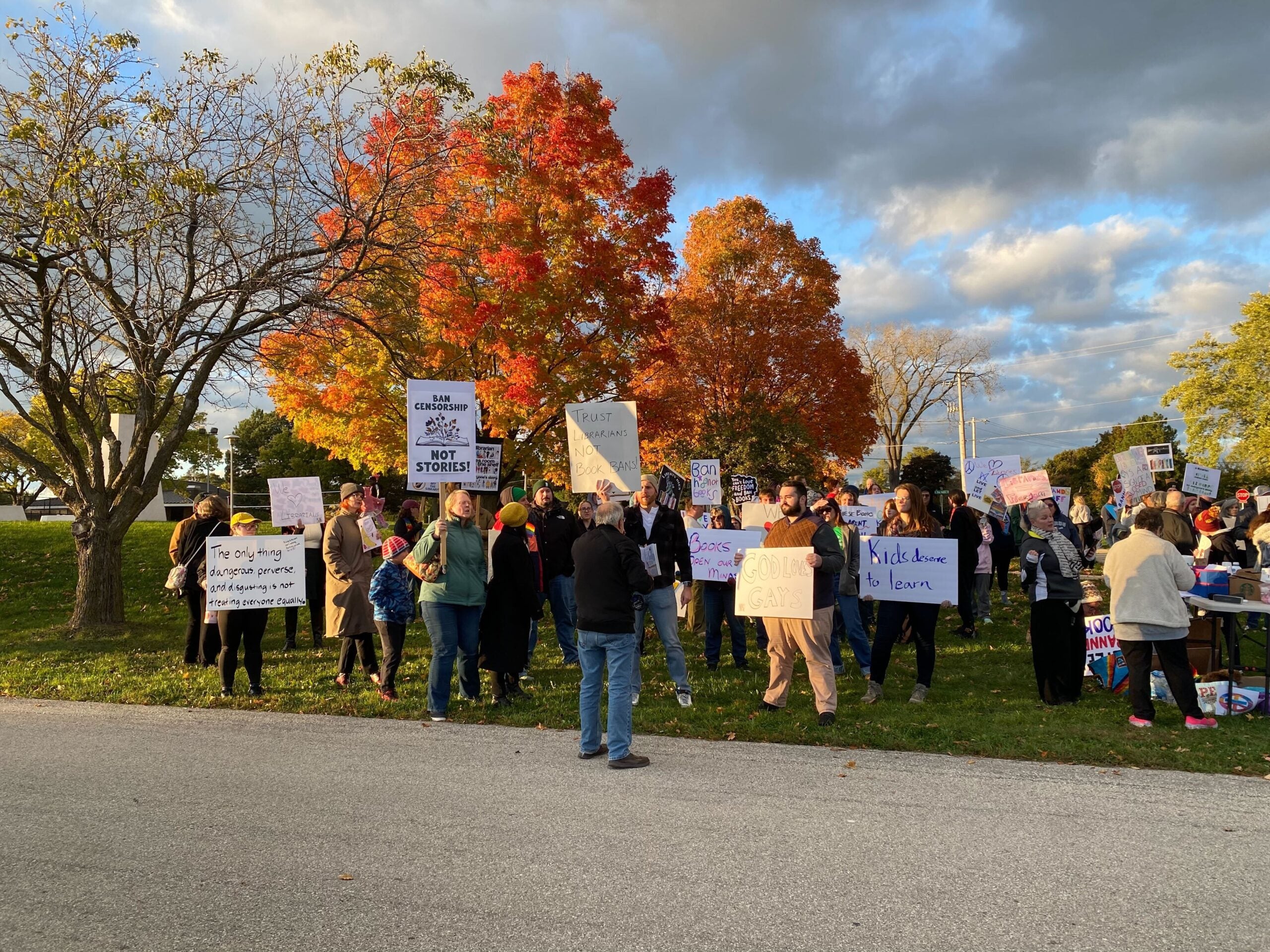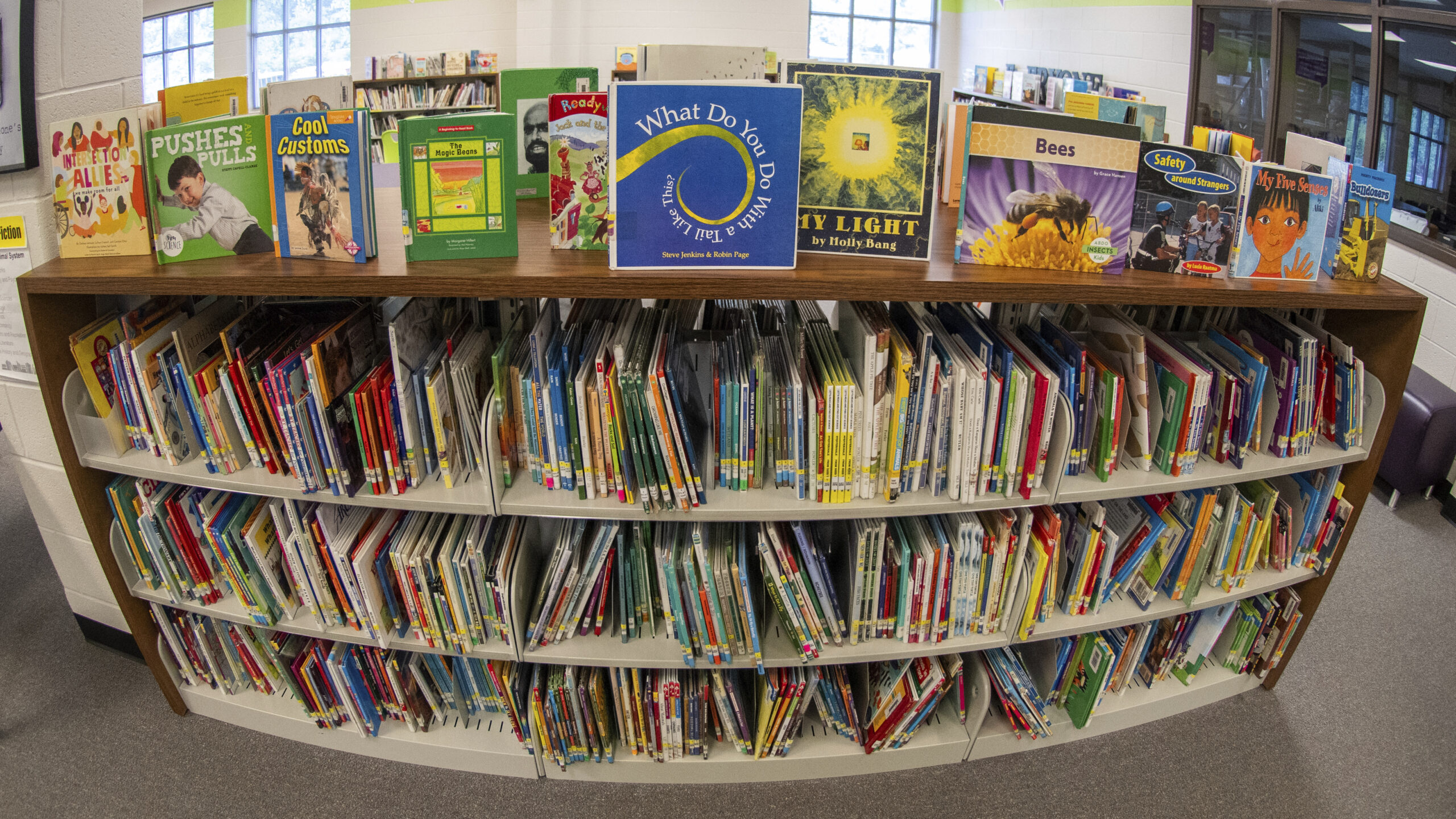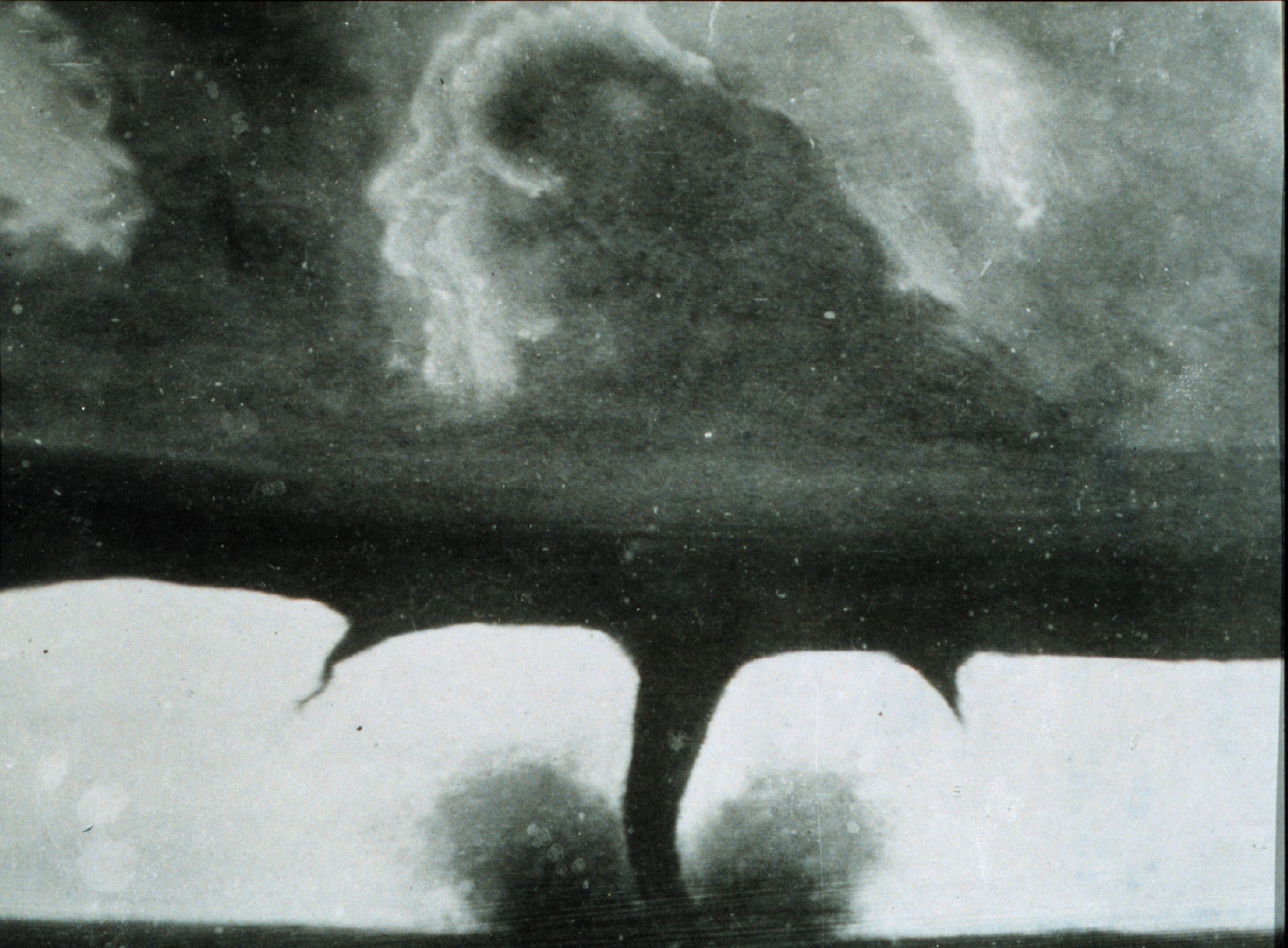Tax-funded libraries in Kenosha County could be asked to place books with “obscene” language or descriptions of sex in “adult-only” areas under a proposal coming to a vote this week.
The resolution “respectfully requests” libraries create “secure adult-only” sections for material containing “adult content.” The plan was approved by a 3-2 vote at the committee level. It moves to a full vote of the Kenosha County Board of Supervisors on Wednesday.
Kenosha County Supervisor Tim Stocker introduced the resolution. It calls for a secure section within libraries for materials with obscene language, descriptions of sex acts or pictures of sex.
News with a little more humanity
WPR’s “Wisconsin Today” newsletter keeps you connected to the state you love without feeling overwhelmed. No paywall. No agenda. No corporate filter.
In his address to the county’s Finance/Administration Committee, Stocker claimed pornographic books are accessible to children in public libraries throughout the county.
“I’ve become aware of what I think is a serious problem within the library,” Stocker said. “All we’re asking is that (books) be put in a section that children don’t have access to (them). To me, that just makes sense.”
Kenosha County’s library system includes the community libraries in Salem Lakes and Twin Lakes, along with the Kenosha Public Library, which currently has four branches and a fifth opening later this year.
Barbara Brattin, director of the Kenosha Public Library, said the libraries have designated sections for different age groups. She said there is no pornography in the library. And, she said, obscenity is subjective.
“I think that’s each person’s decision about what that is, (but) certainly not in children’s books,” Brattin said.
She said books are purchased based on merit after being reviewed by industry professionals and recommended by publishers and professional journals. Brattin said books are placed in designated sections of the library, organized by age, based on reading level and subject interest.
Stockton did not return WPR’s multiple requests for comment. During the committee meeting, he did not clarify who would review the books or how the resolution would be carried out. But he said he is not interested in banning books from the library.
County Supervisor John Poole, who voted in favor of the plan, suggested issuing separate library cards for children who receive parental permission to check out certain books.
‘Parents cannot keep 100 percent eye’
County Supervisor Terry Rose opposes the resolution and voted against it in committee. He believes it’s a form of censorship.
“That’s why people came to this country: so they could read, think, pray without interference from government,” Rose said.
The proposal says materials containing adult content can be discrete, making it difficult for parents to know which books have adult material. Stocker said parents aren’t always aware of what media their children are consuming.
“We all know that parents cannot keep 100 percent eye on their children,” Stocker said.
Brattin said parents should choose what their children read, not the government.
“They should participate with their child in the selection of the books and in the reading of the books,” Brattin said. “Parents know what their child is ready to learn about or be exposed to.”
This story has been updated to reflect the resolution is a request to libraries, not a requirement.
Wisconsin Public Radio, © Copyright 2026, Board of Regents of the University of Wisconsin System and Wisconsin Educational Communications Board.





